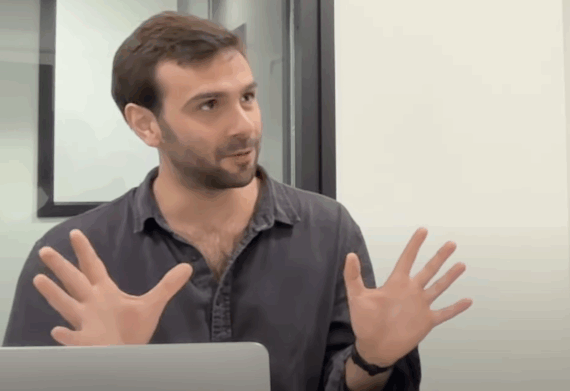Foucault does not merely flirt with the vocabulary of Capital volume 1 but proposes instead to expand the Marxian theory of capitalist exploitation by analyzing the techniques of power that constitute proletarians as productive—and thus exploitable—subjects. [Continue reading here…]
Michel Foucault
Many commentators posit a stark conflict between Marx and Lacan—or, more generally, between Marx and post-structuralist thinkers. But Lacan’s discussion of desire and alienation might be useful for a reading of Marx. It may serve to enrich the questions of desire and alienation that infuse Marx’s discussion in the Paris Manuscripts, rather than undermine them. [To read more, continue here…]
By Bernard E. Harcourt Marx’s articles titled “Debates on the Law on Thefts of Wood,” published in the Rheinische Zeitung in October and November 1842, were fetish texts among critical legal scholars, critical sociologists, Marxist historians, and radical lawyers during the late 1960s and 70s.[1] The articles do not typically appear in the canon of Marx’s political writings. They are absent, for instance, from the classic, exhaustive, American compendium, The Marx-Engels Reader, edited by Robert C. Tucker—that thick red volume that every undergraduate in social studies carries with them. They are considered by some, following Louis Althusser, as still tainted […]
The content and concepts in Marx’s Theses on Feuerbach model the kind of philosophical method and argumentative strategy that might serve us well today to get beyond, not the conservative Hegelian Idealism that dominated Marx’s intellectual milieu at the time, but the present political liberal hegemony that prevents collective cooperation and political action… [continue reading here]
In his new book on the democratization of labor, *The Working Sovereign*, Axel Honneth takes a realist and pragmatist approach, advocating both for alternative democratic changes to the organization of labor and reforms to capitalist labor structures. It is a formidable intervention; but does Honneth’s account adequately take into account that the valuing of labor was itself a motivated project: labor became an object of value—whether in the work of Locke, or the early Protestant work ethic, or Hegel—driven or inspired by a deliberate (though perhaps not fully articulated or conscious) effort to make work appear valuable to laborers. Labor was transformed or shaped into a valuable performance in these philosophical interventions. But these philosophical constructions may be illusions, fabricated ways of trying to convince workers of the importance of their work as a way to reproduce more workers. If we look at it from this instrumental perspective, then the question that would arise is: What work are those philosophical discourses doing? And why might it be important to look at the work that they were doing? [To continue, read here….]
In her book, Rivals: How Scientists Learned to Cooperate (2023), Lorraine Daston traces the evolution of scientific cooperation from the eighteenth century to present times. Daston focuses on three periods which, she argues, capture different styles of scientific cooperation during the eighteenth, nineteenth, and twentieth centuries. Over the past three centuries, Daston identifies progress, culminating in the twentieth-century concept of “a scientific community.” [Continue reading here…]






